We will discuss alternative cost and Flashback while taking a look at Past in Flames and Snapcaster Mage.
Past in Flames gives Flashback to each instant and sorcery card in your graveyard. This effect may in fact affect such wonderful cardboard as Force of Will, Mental Misstep, Logic Knot, Dread Return, Ancestral Vision and Chord of Calling. Fascinated already? I believe, many players are wondering by now how these cards may be played and how they may not. Let’s figure it out together.
First, lets us scrutinize the peculiarities of Past in Flames. Its effect is not a static ability effect, and it changes the objects’ characteristics (Flashback ability is a characteristic). Therefore, the list of objects it affects is determined once: at the moment when Past in Flames resolves and comes into effect. The cards that would hit the graveyard after this moment won’t gain Flashback (including Past in Flames itself which will be moved to the graveyard after it finishes resolving. Note that subsequent Past in Flames will give Flashback to any instances of this card already in the graveyard at that time).
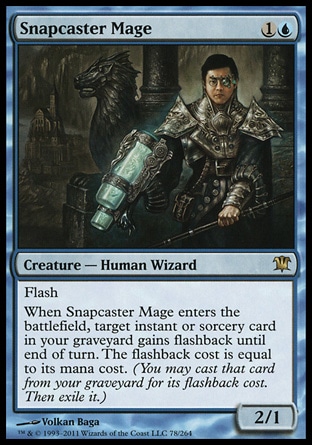
Snapcaster Mage has a triggered ability with an effect similar to that of Past in Flames, except it grants Flashback to just one target instant or sorcery card in your graveyard.
Flashback is a keyword for an ability, or rather, for two abilities. Therefore, effects that remove abilities from cards in graveyards can remove Flashback granted by Past in Flames:
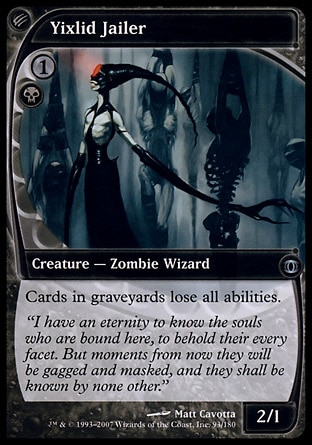
If a Yixlid Jailer is on the battlefield, it matters when it appeared there, before or after Past in Flames resolved. The effects of these card are taken into account on the same layer, which is why the one with the latest timestamp wins.
The cost of Flashback gained through Past in Flames’ effect is equal to the card’s mana cost. This is stated in the spell’s text. But actually, you need to understand that it is about the mana cost of the spell to be cast through Flashback. As such, the Flashback cost to cast the spell is determined when it is already on the stack. Some cards feature different costs for the card in graveyard and for the spell on the stack.
Note that it doesn’t matter how the card ended up in the graveyard. It could have been dropped there not from the stack at all, but, say, discarded from hand or put from the library. The value of X, the half of the split card, the mode of a modal spell etc. — all that is defined at the first stage of the process of casting the spell:
In terms of the spell’s mana cost, the cost of Fireball is {XR}, so the Flashback cost is also {XR}. You will announce the value of X while casting the spell. If additional targets are chosen, you will need to pay respective additional costs.
Each half of Fire / Ice has its own mana cost. And since we only play one half, each has its own Flashback cost: {1R} for Fire and {1U} for Ice.
Ancestral Vision has no mana cost, therefore its Flashback cost cannot be determined. An indefinite cost is unpayable, so you will not be able to cast Ancestral Vision from the graveyard.
Phyrexian mana symbols provide us with the option to pay either mana of given color ({W}) or 2 life. It kind of looks like alternative cost, but it isn’t, just as “hybrid” ({W/B}) and “monohybrid” ({2/W}). You just announce which mana (or life) you are paying while casting the spell.
Each card will gain Flashback with cost equal to its mana cost:

To cover the Flashback cost of Spectral Procession, you may pay either {WWW}, {2WW}, {4W} or {6}.
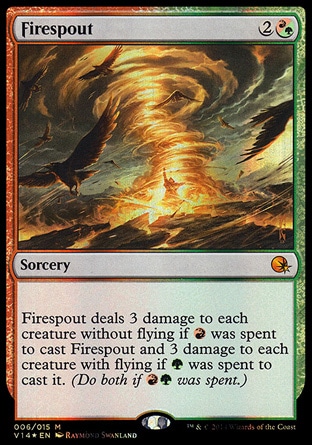
As means to pay for flashbacking Firespout, you may pay either {2G} or {2R}. The effect will depend on the color of paid mana. In order to “hit them all”, you would have to pay {1GR}.
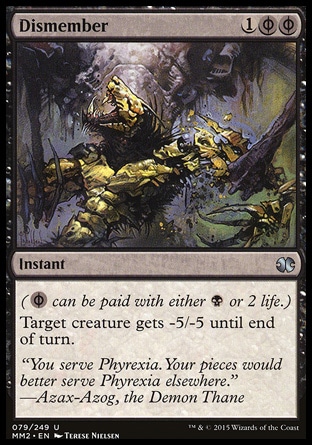
The payment of Dismember’s Flashback requires either{1BB}, {1B} and two life, or {1} and 4 life.
Now’s the time for some theory.
Alternative cost
An alternative cost allows casting a spell without paying its mana cost.
The option to pay a spell differently is usually stated in the text of the spell (or ability suggesting an alternative payment) and appears as follows:
- “You may [perform an action] rather than pay [this object]’s mana cost”
This is stated on Force of Will or Shining Shoal, as well as in the rules for Flashback, Overload and Evoke.
“You may play [this object] without paying its mana cost”
Such words can be found in the rules for Suspend or Cascade for instance.
When you have the option to cast a spell with multiple options of alternative payment, only one may be used. You must announce the method of payment for the spell when placing the spell on the stack.
Alternative options are always optional. If you can pay the regular cost, you may do so.
An alternative cost does not change the spell’s mana cost, nor mana value. No matter what you actually paid, the mana cost remains the same.
Shining Shoal has an alternative cost allowing to cast it by exiling a white card in hand with mana value equal to announced X rather than paying the spell’s mana cost.
Nevertheless, its mana cost on the stack is {XWW}, and mana value=X+2.
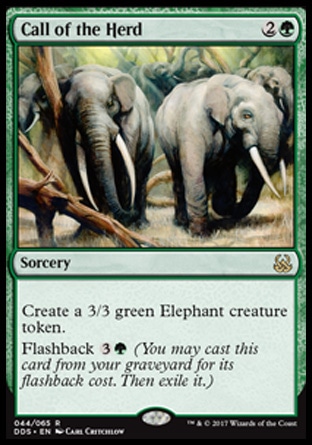
Call of the Herd has Flashback (see below) which allows to cast it from the graveyard at the alternative cost of {3G}. However, the mana cost of Call of the Herd is {2G}, and mana value is 3, regardless of how you cast it.

Evermind doesn’t have a mana cost, and as a result, it may only be played through an alternative cost. For example, Mind’s Desire provides with an option to do so.
Evermind’s mana value is zero.
Should you choose to pay a spell’s alternative cost, you need to remember that all additional costs (optional ones like Kicker, or compulsory ones like that of Ichor Explosion) still need to be paid additionally.
Effects increasing or decreasing the cost apply to alternative cost (as much as possible, of course).
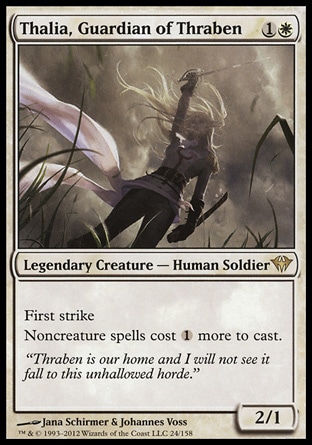
Thalia, Guardian of Thraben increases the cost of noncreature spells by {1}. This effect is applied also when you cast a spell “without paying its mana cost”. The mana cost isn’t paid, but {1} has to be.
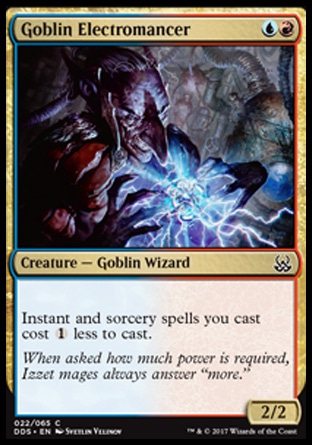
Goblin Electromancer’s effect reduces the casting cost in terms of total cost. It is applied as well when the player chooses to pay a spell’s alternative cost: Flashback, Overload etc.
Trinisphere considers the total cost after applying all increases and reductions (from effects such as Thalia’s and Goblin Electromancer’s). If thereupon the mana part of the total cost is less than three mana, three needs to be paid.
Flashback
Flashback is a keyword for two static abilities, one working while the card is in the graveyard, and the other while the card is on the stack.
“Flashback [cost]” means “You may cast this card from your graveyard by paying [cost] rather than paying its mana cost” and “If the flashback cost was paid, exile this card insteadof putting it anywhere else any time it would leave the stack”.
The words “rather than paying its mana cost” tell us immediately that the Flashback cost is an alternative cost.
You may not cast Force of Will from the graveyard for its own alternative cost. Flashback allowing to cast it from the graveyard supposes paying an alternative cost equal to its mana cost, in this case, {3UU}.
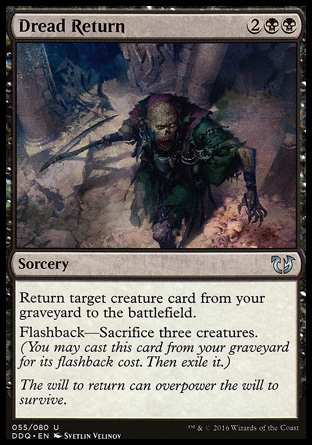
If you cast Past in Flames and you have Dread Return in your graveyard, that card will have two instances of Flashback. One with the cost {2BB} due to Past in Flames’ effect, and another “innate” one with the cost of sacrificing three creatures. You may choose which cost you pay.
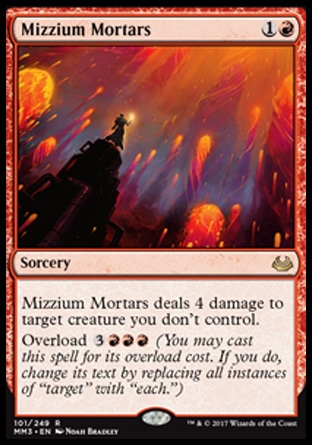
If Mizzium Mortars fall under Past in Flames’ effect, they will get Flashback {1R}. This is an alternative cost. It is impossible to cast the spell for its Overload cost from the graveyard.
The ruling about exile makes it obvious that a spell card for which Flashback was paid goes only to exile from the stack.

If you cast a spell for its Flashback cost, and the cunning opponent counters with Counterspell, it will hit the exile, not the graveyard as usual.
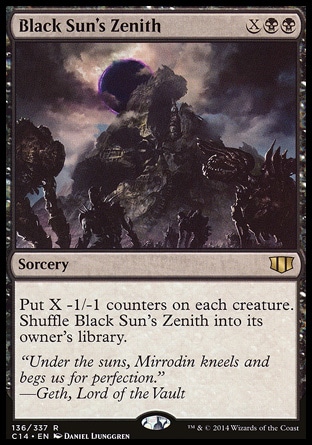
A Black Sun’s Zenith cast for Flashback cost doesn’t get shuffled into your library, since it can only hit exile from the stack. You don’t need to shuffle your library in this case.
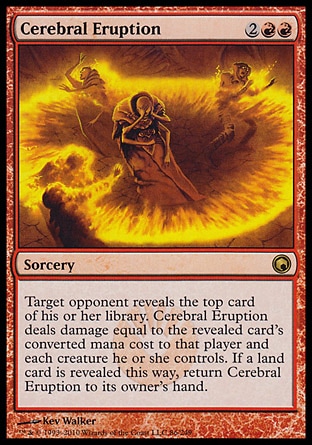
When casting Cerebral Eruption for its Flashback cost, we cannot return it to the hand even if a land has been revealed.
But there are some curious things to mention.
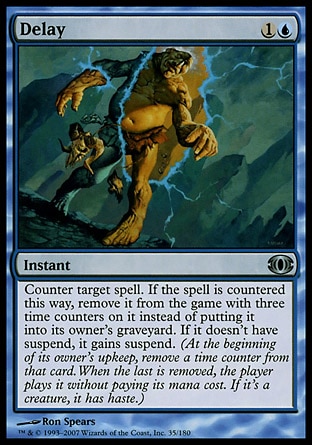
Suppose your spell cast with a Flashback cost is countered with Delay. It will go to exile and gain Suspend, if it doesn’t already have it.
Thing is, the effect of Flashback we are discussing now generates a replacement effect, which will “redirect” the card to exile as it would go to any other zone. But the effect of Delay itself sends the card to exile, so the Flashback effect has no reason to interfere.
As the Suspend triggered ability resolves, it allows you to cast the spell without paying its mana cost. It will go to the default zone from the stack (usually, the graveyard). Why not to exile? Because this card has changed several zones and is now treated by the game as a brand new object. It has no memory of Flashback whatsoever.
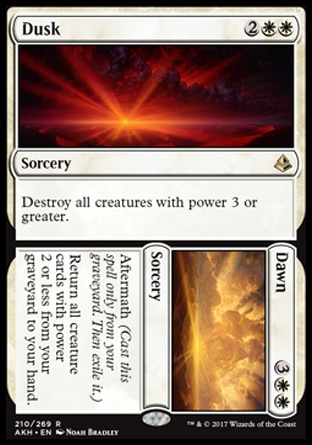
As for Aftermath, it’s alternative cost. This static ability just states restriction on casting the second part of the card.
In addition, it instructs you to exile a card from the stack instead of sending it anywhere else.
So, no matter how you cast the Dawn: by Aftermath or by Flashback — the result is the same.
Flashback doesn’t allow casting a card at any moment at will. It lets you cast the card from the graveyard at any time you could normally play that spell.
NB:
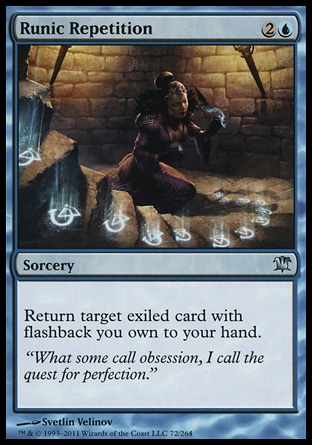
If you cast a card without Flashback on it with Flashback gained from Past in Flames, it will lose Flashback when it gets exiled from the stack (since it will have changed zone) and it may not be targeted with Runic Repetition.
While affected by Grafdigger’s Cage, you simply cannot cast cards from graveyards. Flashback allows casting a card from the graveyard while Cage forbids that. Since, according to Magic Golden rules, the forbidding effect prevails, Flashback is “incapacitated”.
Effects increasing or reducing cost
We have already paid attention to effects increasing or reducing the spell cost while taking a look at Trinisphere and Shining Shoal. These effects are fully applied even when you pay a spell’s alternative cost.
Some abilities allow paying a mana cost in a different way, such as Convoke or Delve.
If the cunning opponent controls Trinisphere, and you cast a spell by paying Flashback cost, you will have to pay the Sphere’s tax if the mana part of the total cost of the spell nets for less than three.
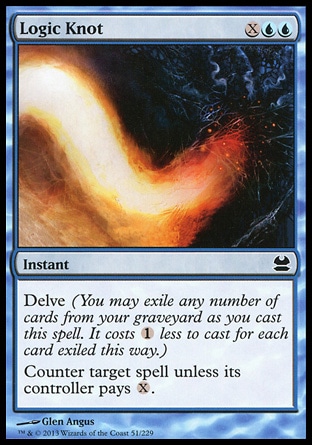
While casting Logic Knot at Flashback cost, we may use the Delve ability to reduce this cost.
When casting Chord of Calling at Flashback cost, we may use the Convoke ability and tap related creatures rather than pay mana.
- ⇑ Considering Flashback, an inquisitive reader may ask how is it that an ability granted to the card through some effect remains on the object when it changes zone. This is due to rule 400.7f which states that if an effect grants a nonland card an ability allowing to cast that card, that ability continues to apply to the new object that card becomes in the stack as it is being cast that way.
- ⇑ A replacement effect is easily recognized by the word “instead”.
Translated by Witas Spasovski
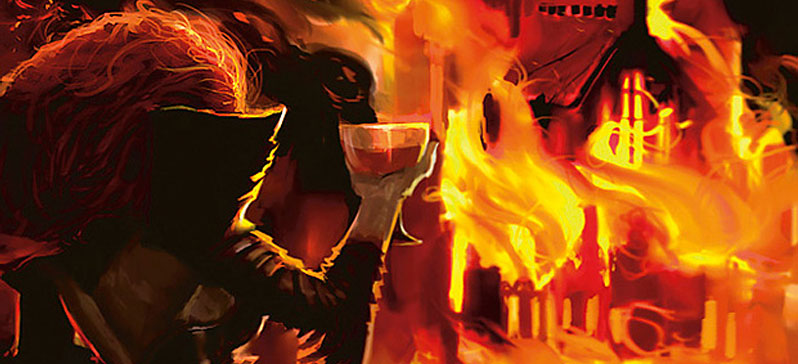
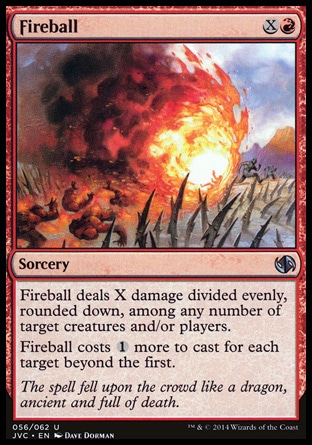
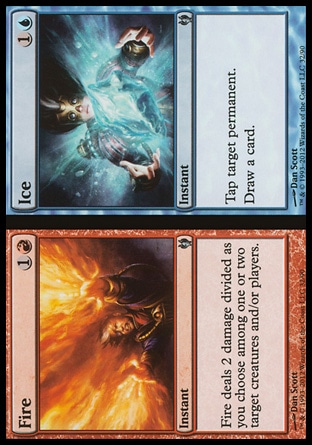
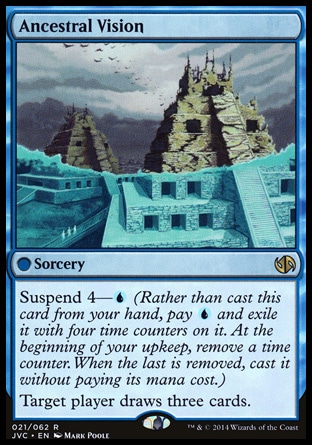
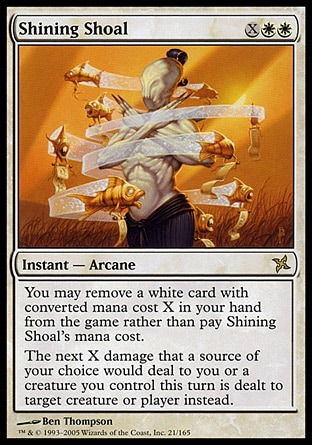
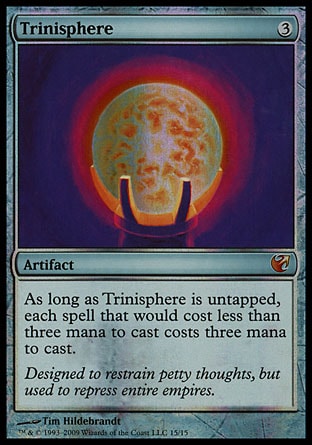
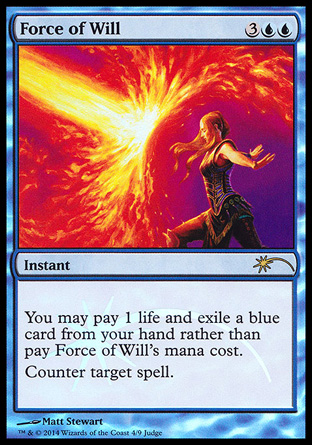
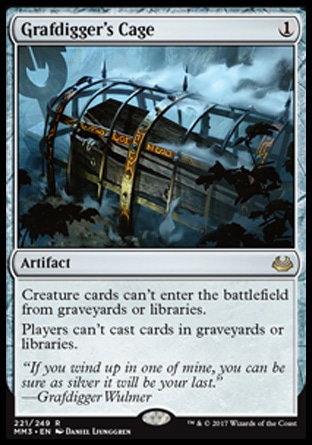
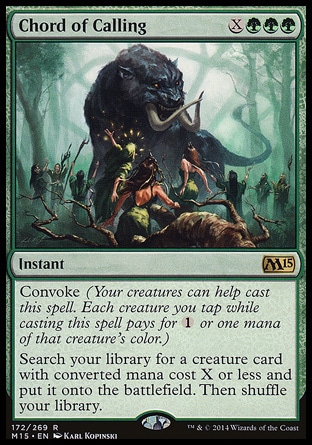
Oracle Text:
Sorcery
Each instant and sorcery card in your graveyard gains flashback until end of turn. The flashback cost is equal to its mana cost.
Flashback {4}{R} (You may cast this card from your graveyard for its flashback cost. Then exile it.)